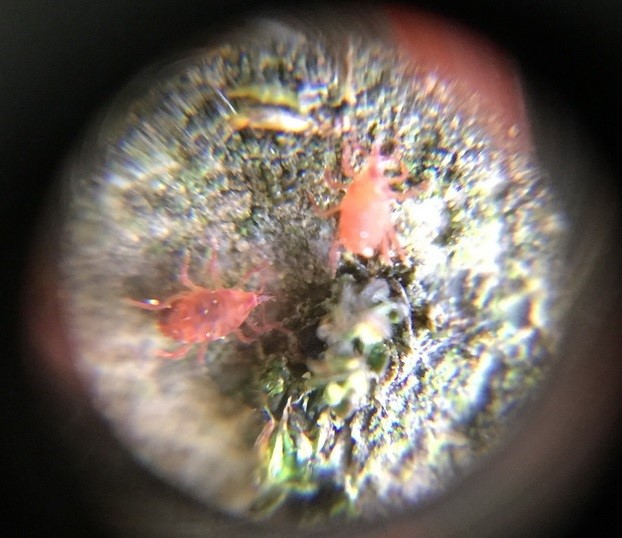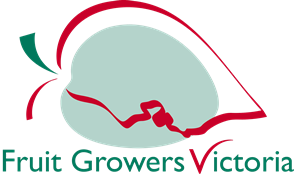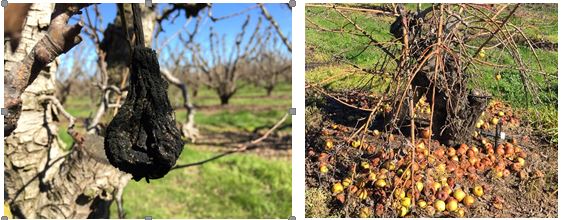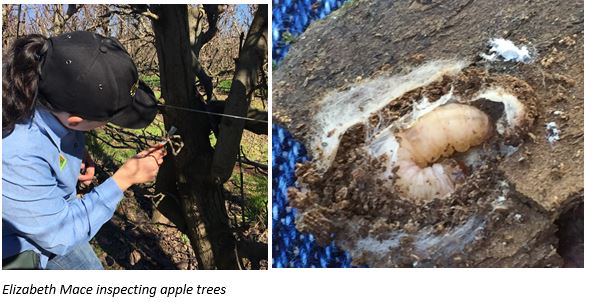Orchard Hygiene and Winter Inspections
As the seasons change from dormant winter into spring it is important to clean your orchard from remaining mummies, fallen fruits and inspect for pests and predator activity.
Every pest is using a different strategy to survive the cold months. Therefore, it is important to find and remove sources of overwintering populations through regular inspections. Besides the inspection of trees, infested fruit that has fallen should be inspected and removed from the orchard.
When inspecting trees, it is important to check trunks and branches of apples for codling moth cocoons and scrub. Codling moth does not overwinter on apple trees only. Any crack in wood on as ladders, in sheds, storage boxes and alternate hosts such as pears, quince, walnut and stone fruits also offer overwintering sites. These areas should be included in inspection as well and such strategy will reduce potential for infestation significantly.

Predatory Mites found on apple trees
Winter is the period where we can reduce potential for infestation of Queensland Fruit Fly allowing chemical methods to be more effective in the following season. It is important to collect and destroy all fly-infested or unwanted/fallen fruit by soaking it in water for 10 days. Do not take fly-infested fruit to the dump without first treating it.
Fungal diseases such as black spot overwinter on fallen leaves. Regular monitoring of the orchard and removal of diseased fruit will reduce fungal outbreaks. All diseased fruit and leaves should be disposed of away from the orchard. Applying of nitrogen (urea) to fallen leaves will enhance their decomposition and make them more palatable to earthworms. Shredding of fallen leaves will also help their decomposition.
Fruit Growers Victoria IDO, Petar Bursac, went for winter inspection of some orchards with Elizabeth Mace from GV Crop a few weeks ago. Chemical distributors, such as GV Crop, IK Caldwell and others, provide technical support to fruit growers, which includes regular monitoring of pest activity in the orchard and advice on chemical treatment. Their field officers are very experienced in identification of pests and diseases, predators, stages etc. According to Elizabeth, it is easy to identify which orchard is practicing IPM and using soft and selective insecticides / miticides based on one predator activity. Every pest has its threshold level. Chemical treatments should be applied only if the pest is above its threshold. Low infestations have positive effect on development of predators because they provide enough food for beneficial insects and mites.
Pruning is important for managing the size and shape of trees and also preventing and managing pests and diseases. Pruning tools need to be sharp to ensure clean cuts are less vulnerable to fungal diseases. Clean and disinfect tools in a bleach solution before pruning each tree, especially where there are diseased trees.




